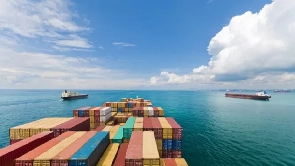 Ghana has a relatively lower network of correspondent banks
Ghana has a relatively lower network of correspondent banks
Improving access to trade finance – credit facilities used by importers and exporters to transact business — particularly through the banking system, could see the nation grow its cumulative trade value by as much as US$2.2billion annually in the near to medium term, a recently-released report by the International Finance Corporation (IFC) has shown.
The report – Trade Finance in West Africa, conducted in partnership with the World Trade Organisation (WTO), examined the trade finance ecosystem in Ghana, Nigeria, Côte d’Ivoire and Senegal, nicknamed the ECOWAS4.
It suggests that an increase in exports by approximately US$1.6billion (10.1 percent) and imports by US$500million (7.7 percent) could be attained if banks extend more facilities and at lowered costs.
“Under this scenario, Ghana would experience the second-largest export boost in the ECOWAS4 behind Senegal, at 21.6 percent, and second-largest import boost behind Nigeria, at 8 percent,” the report notes.
Financing gap
According to the findings of the survey, which sought responses from “lenders accounting for almost the entirety of the four countries’ banking assets”, Ghana has a trade finance market for exports and imports estimated at US$9billion annually.
However, there exists a US$3billion annual deficit, with approximately 26 percent of the value of trade finance requested each year remaining unmet as banks raise concerns over perceived high credit risk and insufficient collateral as well as individual customer loan limits, insufficient documentation, and a shortage of low-cost funding for trade finance.
This trade finance deficit is consistent with the overall ECOWAS4 value, which is estimated at US$14billion, with similar reasons given for the rejection of financing requests by banks.
These factors ensured that domestic trade finance markets remain in favour of well-established bulk exporters and importers while rejections were largely skewed against small and medium-sized enterprises (SMEs), especially those which are owned and led by women.
“SMEs, with their smaller balance sheets, are more likely to face onerous collateral requirements and often lack the financial sophistication to negotiate effectively with their financiers.
Consequently, SMEs, including women-owned SMEs, are disproportionately affected by trade finance gaps,” it noted.
However, of the four countries polled, trade finance covered by bank intermediation was the highest, at 41 percent in Ghana, and at par with the continental average of 40 percent. Nonetheless, this remains well below the global average of 60 to 80 percent.
Ghana, the report suggests, however, has a relatively lower network of correspondent banks – lenders providing banking services to financial institutions in jurisdictions.
“With an average of six correspondent bank relationships, Ghana’s banks were the least internationalised of the ECOWAS4,” the report reads in part.
The average cost of a letter of credit in Ghana is around 2.3 percent and is consistent with the global emerging markets average of 2 percent. It, however, is still prohibitive enough – above 0.25-0.5 percent which is the norm in more advanced economies.
Raft of measures
Turning the narrative around would require a coordinated action from key stakeholders, and would significantly boost trade within the sub-region and provide numerous advantages in light of the African Continental Free Trade Area (AfCFTA).
“The most effective measures would include increasing the provision of trade finance through traditional and new instruments, more firmly integrating trade finance into the implementation of the AfCFTA, and expanding the range of firms that can access trade finance by working with large and small banks to extend their offerings to SMEs,” the IFC noted.
Further measures outlined include the strengthening of correspondent banking relationships, improving access to trade data, and the effective enforcement of rules for collateral while expanding the application and alternative forms of trade finance – supply chain finance, trade finance funds or working capital e-platforms – was touted.
“A higher level of digitisation could also help reduce the processing costs for trade finance instruments. Banks and other institutions can also provide training and outreach to smaller and women-owned firms to better inform them of what facilities are available, and help them to access the market,” it added.
It is estimated that adopting these measures to lower cost could see the nation’s exports to the rest of the ECOWAS4 climb by as much as 20.7 percent, and raising finance coverage to global levels of around 60 percent could raise real exports by 15.2 percent and real imports by 12.5 percent.